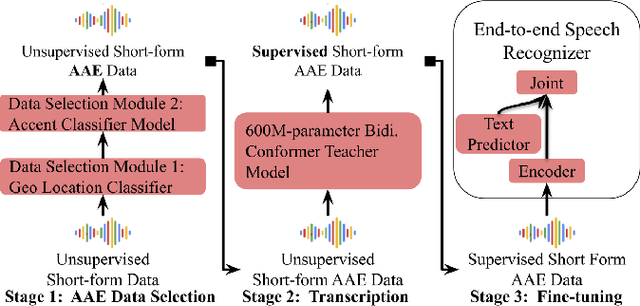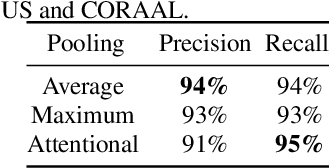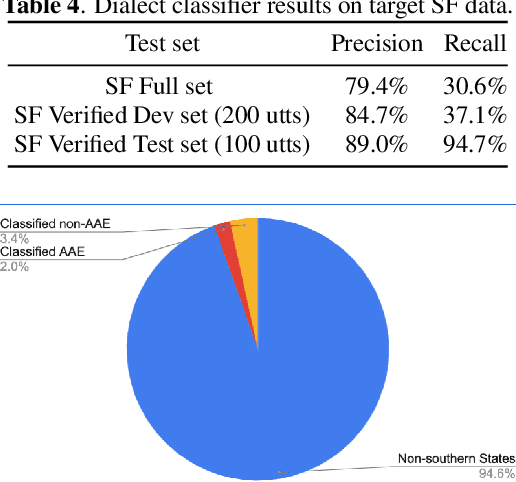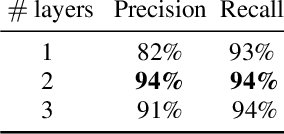Mason Chua
Improving Speech Recognition for African American English With Audio Classification
Sep 16, 2023



Abstract:Automatic speech recognition (ASR) systems have been shown to have large quality disparities between the language varieties they are intended or expected to recognize. One way to mitigate this is to train or fine-tune models with more representative datasets. But this approach can be hindered by limited in-domain data for training and evaluation. We propose a new way to improve the robustness of a US English short-form speech recognizer using a small amount of out-of-domain (long-form) African American English (AAE) data. We use CORAAL, YouTube and Mozilla Common Voice to train an audio classifier to approximately output whether an utterance is AAE or some other variety including Mainstream American English (MAE). By combining the classifier output with coarse geographic information, we can select a subset of utterances from a large corpus of untranscribed short-form queries for semi-supervised learning at scale. Fine-tuning on this data results in a 38.5% relative word error rate disparity reduction between AAE and MAE without reducing MAE quality.
Fast Contextual Adaptation with Neural Associative Memory for On-Device Personalized Speech Recognition
Oct 07, 2021



Abstract:Fast contextual adaptation has shown to be effective in improving Automatic Speech Recognition (ASR) of rare words and when combined with an on-device personalized training, it can yield an even better recognition result. However, the traditional re-scoring approaches based on an external language model is prone to diverge during the personalized training. In this work, we introduce a model-based end-to-end contextual adaptation approach that is decoder-agnostic and amenable to on-device personalization. Our on-device simulation experiments demonstrate that the proposed approach outperforms the traditional re-scoring technique by 12% relative WER and 15.7% entity mention specific F1-score in a continues personalization scenario.
 Add to Chrome
Add to Chrome Add to Firefox
Add to Firefox Add to Edge
Add to Edge